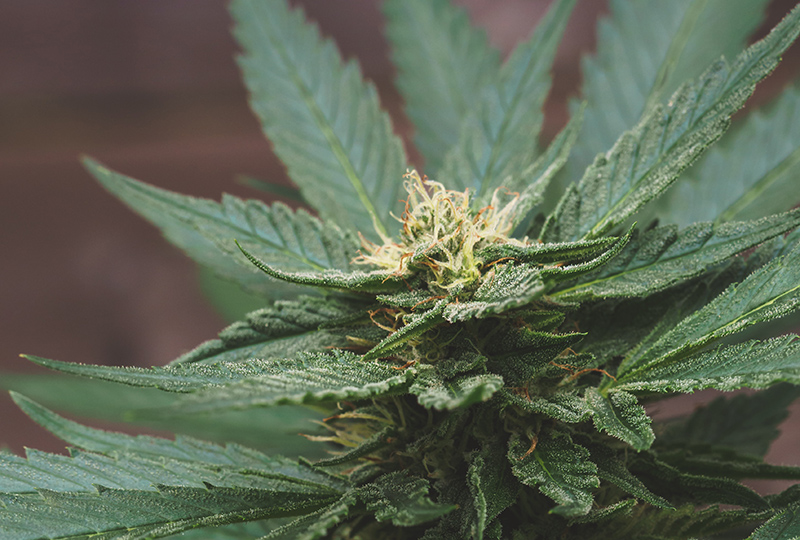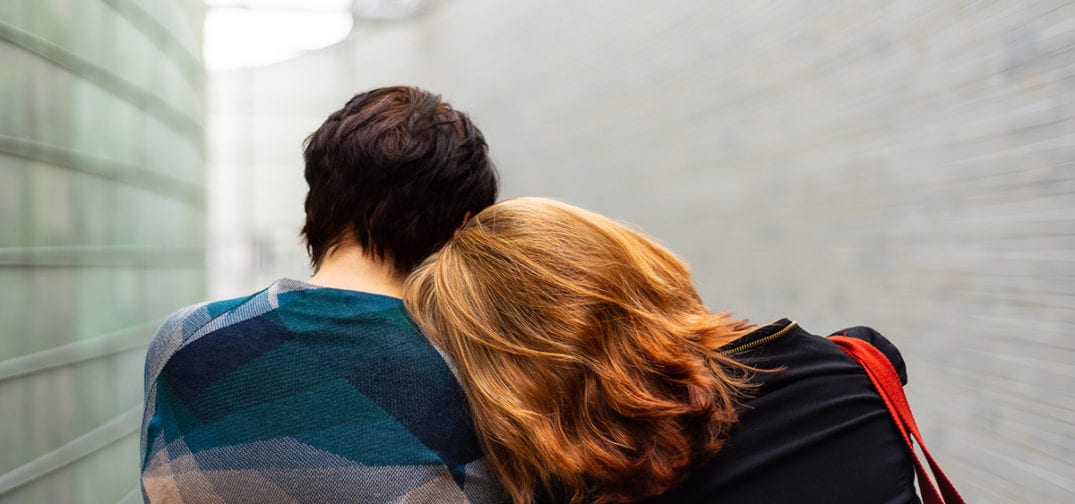We can all agree that the stigmas surrounding both mental health and cannabinoid treatments are dissipating. According to the National Institute of Health, 46.6 million U.S. adults reported having some type of mental illness in 2017, with the highest prevalence of individuals aged 18-25.
CBD, meanwhile, is the fastest growing industry in the wellness sector by far, and the recent legalization of hemp has only further kickstarted the CBD movement into action.
This article will address and summarize the current and ongoing research as it relates to CBD, which continues to grow in popularity, and how it may interact with the symptoms of anxiety.
How Does CBD Help with Anxiety?
There is a growing body of research that suggests the treatment of CBD oil for anxiety. Researchers think this is because CBD acts on receptors in the brain called 5-HT receptors, otherwise known as serotonin receptors. Serotonin is a neurotransmitter that is responsible for many biological processes including learning and memory, appetite regulation, and sleep. You have probably heard of serotonin as it relates to depression, as most antidepressants and some anti-anxiety drugs act on neurons responsible for serotonin release.
A study conducted in 2018 by scientists at McGill University found that administering 5 mg/kg of CBD to rats for 7 days decreased anxiety-like behavior. They discovered this by measuring the firing rate of 5-HT neurons in an area of the brain called the dorsal raphe nucleus (measuring the firing rate can tell you how active those neurons are). This brain area provides a majority of serotonin transmission to other regions of the brain like the frontal cortex. Essentially, the study showed that repeated CBD administration seemed to increase the firing rate of these neurons, which led to a decrease in anxiety when these rats were behaviorally tested. This mechanism could explain CBD’s anti-anxiety and anti-depressant-like effects.
Other research focuses on CBD’s action at TRPV1 receptors. TRPV1 are proteins present in certain parts of the brain and peripheral nervous system responsible for regulating stress and pain modulation (it is also known as the capsaicin receptor, which is in charge of spicy sensations!). Scientists found TRPV1 receptors and cannabinoid receptors in the dorsal periaqueductal grey of rats, a region that plays a part in anxiety and panic responses. Because cannabinoid receptor activation in this region is anxiolytic (anxiety-reducing) and TRPV1 activation is anxiogenic (anxiety-inducing), some researchers speculate that anxiety can come about from an imbalance or dysregulation of CB1 and TRPV1 signaling in this area. This speaks to the presence of CBD’s unique dose-response curve, as CBD could potentially activate TRPV1 (thus increasing anxiety) in high doses.
Mice with their TRPV1 gene knocked out experience lessened anxiety; thus, some scientists predict that the use of both CBD and a drug that would block TRPV1 could be a new line of research for exploring CBD as an anxiety treatment.

How Much Should I Take?
CBD has a tendency to follow what scientists called an inverted, U-shaped dose-response curve. This means, if you imagine an upside-down U on a graph, CBD is effective for most conditions at those median doses (aside from epilepsy, which requires a higher dose). Researchers in Brazil simulated a public speaking task for human subjects to test this. They dosed humans with an inactive control drug, a benzodiazepine, and a variety of CBD doses (100 mg, 300 mg, and 900 mg). They found that only the 300 mg dose of CBD had anxiolytic effects on the subjects during their public speaking task.
If you are looking to use CBD oil to treat your anxiety, it is important to take into account a multitude of factors:
- Does the product contain any THC?
- Are there terpenes present, or is it a CBD isolate?
- What is your history with drug-taking and are you on any other medications?
Many factors can affect how CBD works or how you may feel after taking it; clean cannabidiol is something pro-cannabis legislators are still trying to regulate, and somethings scientists are continuing to examine. Smoking CBD or consuming it via a tincture provides quicker and a more potent relief compared to taking it orally because it reaches your bloodstream faster. Specialists suggest starting at a low dose when starting to experiment, and slowly increase the dose until you’re comfortable or to match your growing tolerance.
Possible Side Effects
The most common side effects reported from cannabidiol are fatigue, weight gain, and nausea. Side effects also depend on the factors listed previously, i.e. your typical drug-taking habits, other medications that could interact with the CBD, etc. Everyone’s body and brain tends to process drugs a little bit differently, which is largely why results can vary.
Possible interactions between CBD and other drugs may exist because CBD is metabolized by a class of enzymes in the liver called CYP450 enzymes. These are responsible for breaking down all drugs in the body. However, many other drugs follow this same metabolism pathway, including some anti-epileptic medications, benzodiazepines, and beta-blockers. If both drugs are “competing” for the same receptors, therefore, it will be harder for them to be broken down and can lead to more of the drug in your bloodstream.
Research shows CBD can render CYP450 enzymes inactive, which further informs necessary trepidation when combining drugs.
As with any drug, take precautions before you begin dosing. Studies show CBD is nonaddictive, but that does not mean it can’t bew psychoactive. We will learn more as restrictions continue to be lifted — the 2018 farm bill, which federally legalized industrial hemp, was a start — but, for now, we can only be informed by what we know today. And today’s research shows that CBD can be helpful for anxiety with the correct dose and after considering potential side effects and interactions with other pharmaceuticals.
Get daily cannabis industry news and insights. Subscribe
End
